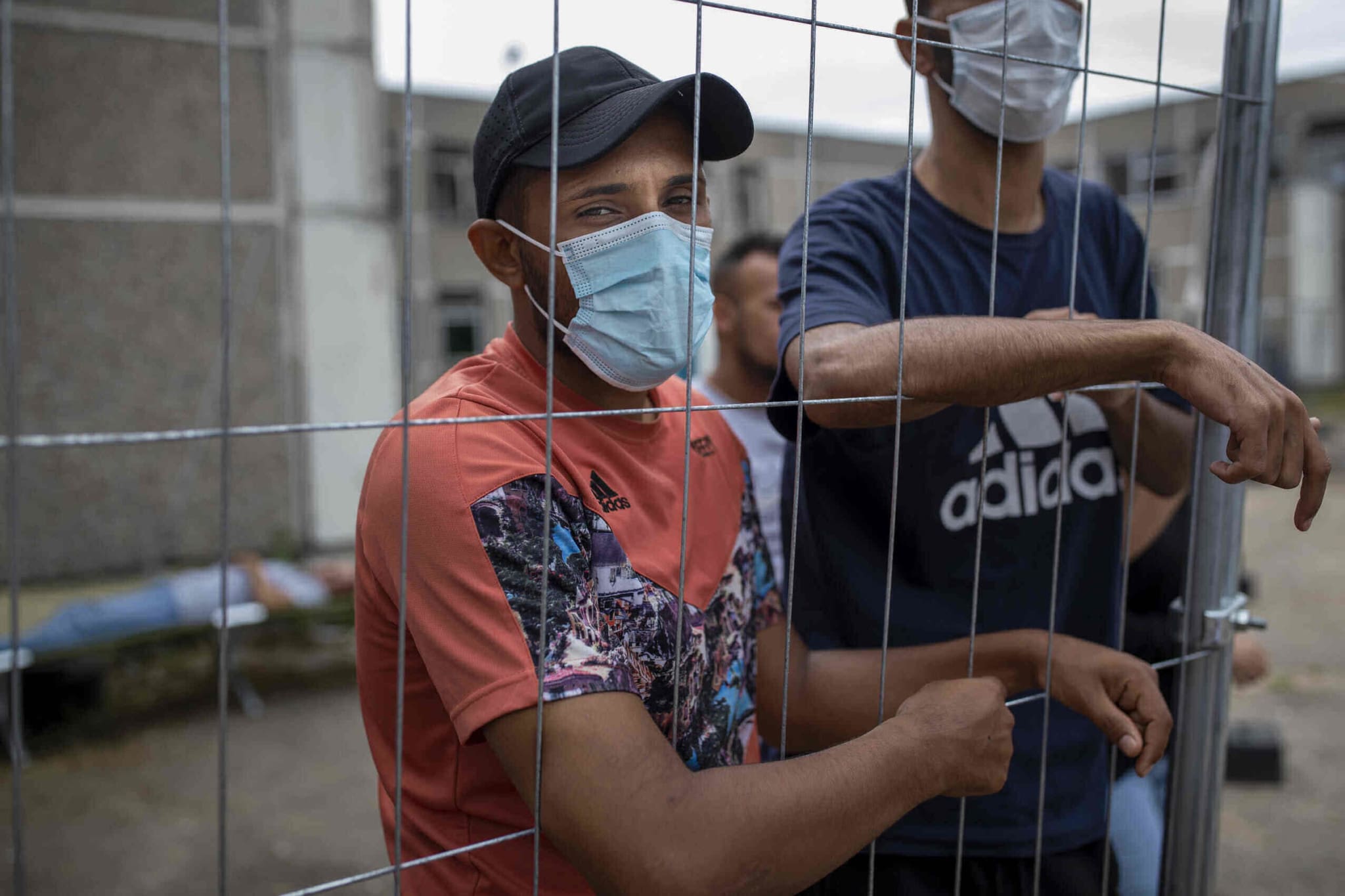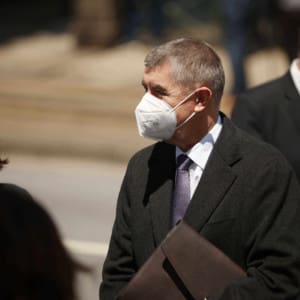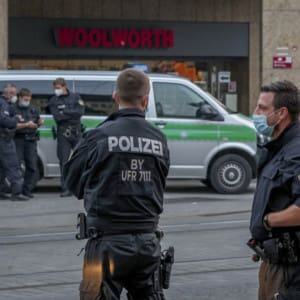Migrants detained in Lithuania after illegally crossing the Belarusian-Lithuanian border have revolted and demanded their release from the refugee camp at a former school in the southern district of Alytaus, the Delfi news outlet reported.
According to the local mayor, the conflict arose after a visit by the TV crew, when migrants in the presence of cameras began to chant “Freedom!” and raised demands that local authorities could not meet. Later, camp residents originally from Iraq refused food and, according to the mayor, banned other refugees from eating, including children. They demand that the authorities release them from the camp.
According to the server, hygienic conditions in the camp have deteriorated sharply in the meantime. Local authorities explain this by saying that migrants also prevented workers from cleaning up and that it is no longer safe for cleaning crews in the camp.
Elsewhere in Lithuania, near the Rudninkai military area near Vilnius, according to Delphi, locals have revolted and blocked access to the place, where a camp for 1,500 migrants is to be set up. Participants in the blockade are preventing trucks with tents and other equipment from driving.
More than 2,700 migrants detained on the Lithuanian-Belarusian border since the beginning of the year
Last week, Lithuania passed a law restricting the rights of migrants entering the country across the border with Belarus. According to Russian news agencies, the law deprives refugees who have crossed the border illegally of the right to travel freely around Lithuania. Detention of migrants in special centers will now be possible for up to six months.
The amendment also shortens the deadlines for processing asylum applications from one month to ten days. The applicant may appeal against the rejection only to the court of the first instance; no further appeal against the subsequent verdict will be possible. According to human rights defenders, the law legalizes violations of rights. However, its authors argue that the measure applies only to the state of emergency declared by the government in early July due to the influx of migrants.
Since the beginning of the year, more than 2,700 migrants have been detained on the Lithuanian-Belarusian border, which is many times more than in the whole of last year. Vilnius considers this influx of migrants to be a “hybrid aggression” of Alexander Lukashenko’s Minsk regime.
Lukashenko responded to the sharp reaction of the West to the forced landing of a civilian plane on the Athens-Vilnius route, after which the Belarusian authorities in Minsk arrested an opposition journalist who was among the passengers. It is also a response to the European Union’s previously imposed sanctions and the fact that Lithuania has given refuge to many Belarusian opposition politicians.
Lithuania has already begun building a 550-kilometer barbed wire barrier on the border with Belarus to stop the influx of migrants. However, according to the APA agency, the construction stopped because Lithuania ran out of razor wire from military supplies. Vilnius has therefore turned to other countries and is now negotiating with Denmark and Slovenia.
On Friday, two trucks with material humanitarian aid set off for Lithuania from the fire brigade from Zbiroh in the Czech Republic. The load of 20 tents, 100 folding beds with mattresses, 500 blankets, 20 heaters, and 500 sleeping bags, together worth 3.2 million korunas, is to help manage the wave of migration. The convoy with humanitarian aid was to arrive in Lithuania on Saturday, said Klára Dlubalová from the Ministry of the Interior, which paid for the contingent from its On-Site Assistance program.
Title image: Haidar Al Garawg, a migrant from Iraq, looks through a fence at the refugee camp in the village of Verebiejai, approximately 145km (90 miles) south of Vilnius, Lithuania, Sunday, July 11, 2021. Lithuania has struggled with a flow of migrants from the Middle East and Africa — a huge influx that officials in the tiny Baltic country say was organized by Belarusian authorities as part of a “hybrid war” against the European Union. (AP Photo/Mindaugas Kulbis)





